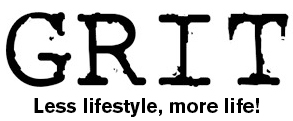

Editor
This month we are discussing the important topic of health. Thank you to our many contributors for sharing their experience of health-related issues ranging from Down Syndrome and diabetes to infertility and cancer.
Next month we want to know if you have you achieved success in an unusual or traditionally male dominated field? Do you have personal experience of dealing with other people’s preconceived national, cultural or religious stereotypes of the type of person they think you should be? Please share how you have broken stereotypes or been limited because of them. Please send your article on “Breaking Stereotypes” (400-700 words) to grit@womenempowered.co.uk before 20th April 2016.
We look forward to hearing from you.
Sunita Behl
Editor
Just 12 hours after giving birth my doctor dropped a bombshell “Have you noticed any abnormal features about your baby?” “Errrrr well of course not, he’s my gorgeous baby boy” I thought. The reality was, I knew exactly what was coming next, I’m not sure how or why, but I just knew. “Your baby has the clinical features of Down Syndrome, I’m so sorry….I’m so sorry” she said. She kept repeating those words “I’m so sorry” as if he had died.
For those of you that don’t know, Down Syndrome is the most common genetic disorder. It affects the twenty first chromosome, where there are 3 copies of it, instead of 2. Along with that extra chromosome come a number of health implications including some learning difficulties, muscle weakness and an increased risk of some medical conditions.
Our baby spent the first two weeks of his life in a neonatal intensive care unit before we were launched into a world of doctors, nurses, physiotherapists, occupational therapists, speech and language therapists, ophthalmologists, cardiologists, haematologists, audiologists, neurologists, respiratory consultants, paediatricians……the list went on and on.
Once we got over the initial shock, and learnt more about the condition, we slowly started to find our feet and even went on our first family holiday! We had bad days but also had good times. We were able to smile and laugh again – Kush was doing so well. But then we had another bombshell.
When Kush was only 16 weeks old he started to have seizures. Infantile spasms – the most severe form of infant epilepsy – with devastating consequences if uncontrolled. We were under wonderful doctors at Great Ormond Street, but nothing seemed to help. He was put on an extremely high dose of steroids, suffered side effects and his little immune system was non-existent – even catching a simple cough or cold could be fatal.
On Kush’s first birthday he could not sit unaided, crawl or babble. I wasn’t even sure if he really knew who I was. One day we watched our baby boy have over 200 seizures which lasted more than half an hour. It was gut wrenching and we felt helpless. I often had days where I would just cry.
Then, as if by some miracle, he managed to gain control. Seizure free hours turned into days, days turned into weeks, and weeks to months. And now those months have become years. As he was weaned off the cocktail of medication our little boy woke up, started progressing, and became the cheeky little boy he is today.
Our journey since then, in comparison, has been utter joy. On a day to day basis, the most prevalent “difference” is Kush’s learning difficultly. He is like any other child but just needs more of our time. It’s amazing how far he has come and how much he already knows. It’s really sad when other people can’t see this, or don’t take the time to get to know him. It’s sad because they don’t see him, they only see his condition, and often make wrong assumptions of his capabilities. All parents want to ensure their children are equipped to fulfil their potential and parents of differently-abled children have the same aspirations.
We now celebrate every tiny thing many others take for granted – all the things we thought Kush might never ever be able to do. Every time he smiles, says Mummy, walks, talks, sips from his own cup, uses a spoon and fork independently, counts, sings or plays with his sister, my heart bursts with pride. My child is living his life, my child is enjoying his life, and my child is happy. What more can I ask for?
We are now working hard to raise awareness of Down Syndrome. There are now tests available where pregnant women can test to see if their foetus has Down Syndrome. The termination rates on the back of this is close to 100%. It breaks my heart to think that my child could be one of the last in his generation of people with Down Syndrome. There are hundreds of medical conditions which we cannot test for, some of which result in a very poor quality of life. Why are we stamping out people who can live very happy, high quality, independent lives? I’m not saying it’s easy, but when was anything easy? Down Syndrome is certainly nothing to be afraid of.
It may sound strange, but even with all the challenges we consider ourselves very lucky, and are so thankful for our little boy. He has had to endure so much but he keeps smiling, trying, and fighting. Which is why we will keep smiling, trying and fighting for him.
No one knows what’s around the corner. Life can change in an instant. It shouldn’t take something big to happen, whether it be a health scare or medical diagnosis, to start living your life. So celebrate the good, pick your battles and most of all appreciate how lucky you are.
You can follow our story on Instagram and youtube @T21teamkush and Twitter @nisha_j_soni
It all started with chest pain and difficulty breathing during my pregnancy. I was treated with physiotherapy and mild painkillers. (What else could they do?). As I finished my last day at work as a special needs dentist to go on maternity leave, little did I know how much my life was about to change.
After my son was born, I put my severe pains down to bruised ribs and a difficult labour. It wasn’t until a physiotherapist (a dear friend), pushed me to keep going back to the GP. In 2011, after seeing specialists and having an MRI they discovered I had an enlarged tumour in my sternum. I was diagnosed with a Myeloma and told, although it was treatable, it was incurable. I was 33 years old with a seven-month-old baby.
The following weeks were full of tests, looking at the spread of the disease and being told worst and best case scenarios. Looking back now, this was the most emotionally draining time of my life. I grieved for my husband, my son and my own future.
After 5 long weeks of waiting I thought all my birthdays had come at once when my results showed there had been no spread outside the sternum. My tumour was reclassified to Plasmacytoma which was great news. Although I still had a 50% chance of progressing to Myeloma the current tumour was now potentially curable. The only caveat was the location and size (11cm) meant that I was going to be left with short and long-term side-effects from the treatment, a combination of high dose steroids and high dose radiation.
People often ask how we coped as a family. I couldn’t have gone through any of this alone. My husband was, and still is, my rock. Our friends and families were amazing. My husband planned the childcare rota, we de-cluttered the house and sorted out our paperwork, just in case. The hardest part was being away from my son during the treatment. I just assumed life would continue as before after the treatment finished but how wrong was I !!!
The fatigue hit and at its worst I was sleeping 16-18 hours a day. My sternum was so weak it kept repeatedly fracturing so I was advised not to lift my son if possible. Almost a year after treatment, scans showed some of the tumour was still active and the doctors decided to watch and wait. By this point, we were all physically exhausted and emotionally drained. It was also becoming clear that my pain and upper body weakness meant that I would be unable to return to the career I loved.
My husband was exhausted from working full time, doing the night shifts and managing everything else. So he took a career break and we all had some much needed time out. By now our son was two and we planned a 4 month trip around the world.
Fast forward to today and fortunately the treatment has worked and nearly six years on, I am staying on the right side of the 50% statistic. I have been able to see my child’s first day of school and enjoy every part of his childhood. He won’t have a sibling but this ok given the risks. We eat a lot more green food and have learnt to live our bucket list (or life list) rather than saving it for later.
I no longer work as a dentist, but this has opened my eyes to other ventures. My breathing has been affected and I am undergoing cardiac rehabilitation. I struggle to eat spicy food, but that’s not a great loss. I’ve also learnt that although I’m a pretty positive, strong person, it is ok to have bad days. I’ve accepted that there will be days where I will still be anxious about blood tests, when my pains bring back fears of recurrence and that more side effects may still arise as time goes by.
There is plenty of support out there to help, from charities and organisations. www.shinecancersupport.org is one charity very close to my heart as it specifically supports those who have a cancer diagnosis in there 20’s, 30’s and 40’s.
I am one of the lucky ones……
We all need to talk more about diabetes. Not in the way that it is inevitable if you’re South Asian, so what’s the point? But how we can all do something about it by increasing awareness, dispelling the myths and perhaps even preventing it.
I have a passion for raising awareness of diabetes from both a personal and professional point of view. I’m a specialist diabetes dietitian, I have family members with the condition and I come from a community where it’s widely prevalent. Time and time again I have seen people’s quality of life diminished and their lives unnecessarily shortened. But this doesn’t have to be the case – Type 2 diabetes is a condition that can be avoided or at least delayed.
Type 2 diabetes is on the rise. It’s one of the most common health conditions in the South Asian community and we’re all bound to know at least one person who has it. People from a South Asian, African-Caribbean or Black African background are much more likely to develop Type 2 diabetes than the general population – partly because of genetics and family history but also because more and more of us are becoming overweight. Because it’s so common, it’s maybe seen as not being that serious and more of an accepted inevitability – ‘my mum has it, so I’m bound to get it sooner or later’. The point is it is serious. It can lead to devastating complications like amputations, blindness, heart attacks, stroke, and kidney disease. The good news is we can also do something about it and maybe even avoid it in the first place.
There’s many myths and misconceptions around Type 2 diabetes. One of the most common I hear is ‘Eating too may sweets causes Type 2 diabetes’. This isn’t true. Type 2 diabetes is caused by a number of factors, but two of the main reasons is coming from a South Asian, African-Caribbean or Black African background and being overweight. We can’t do much about our genetics, but what we can focus on is our lifestyles – eating healthier, being more physically active and keeping to a healthy weight.
Another thing I hear a lot is ‘Type 2 diabetes can be reversed or cured’ (usually through various homemade or internet-ordered concoctions!!) The truth is there is no miracle cure – having diabetes requires attending appointments, taking medication, eating healthily, being active, keeping to a healthy weight and taking ownership of your condition.
We could all do with making changes to our lifestyles – the key is to make small changes that are realistic and achievable. This could mean anything from tweaking your favourite recipes, using the stairs instead of a lift or swapping an unhealthy snack for a piece of fruit. We need to change our attitudes and break old habits so that the new habits become the norm.
We need to talk more about Type 2 diabetes so the social stigma around diabetes is lessened, its seriousness is highlighted but most importantly so that the younger generation take steps to protect their future health. This takes a change, not just at an individual level but in the family and wider community.
Diabetes is serious. And we need to be serious about it too.
When I was 9, I got tendonitis in my leg which was so severe I was placed in a plaster cast. I was diagnosed with hypermobility (over flexibility which was pressuring my joints and ligaments). I had to relearn how to sit, walk and move “properly” again.
Aged 13, I fractured my sternum (chest bone) and my coccyx (tail bone) and ended up with chronic back pain for 8 years. Aged 14, I was diagnosed with Polycystic Ovarian Syndrome. At 24, I was rushed to hospital for emergency surgery on two cysts that had twisted my ovary and were starving it of oxygen. At 26 I had a severe allergic reaction to a South American insect bite resulting in weeks of anti-histamine injections, steroids and antibiotics. A few months later, the insect bite re-infected and I contracted streptococcus, requiring weeks of treatment and daily trips to A&E and the Tropical Infections unit. At 27, I discovered my pelvis had twisted and I am now working on straightening it out to prevent further pain.
My medical history surprises most people and fascinates my medical friends – they have a never ending case study of weird and wonderful health-related problems to learn from. My poor family have had to deal with years of GP appointments, trips to A&E, hours of tears and nursing me back to health. However through all my experiences I’ve learned many useful things which I hope may help others who may be dealing with their own health battles.
- You are stronger than you think. Being diagnosed with health issues at a very young age means I barely remember life without some sort of medical problem. Now I see them as a challenge – our minds are much stronger than our bodies.
- Follow your gut. Sometimes, you will just know that something is wrong with you and that it is severe. Doctors and nurses work incredibly hard but are under extreme time pressure. If you really feel that something is wrong, present your case and push for further check-ups and a second opinion. Medics are wonderful but they may not have seen your symptoms before.
- The NHS is made up of angels. After surgery, I cried from the pain through the night. Nurses took it in turns to hold my hands and stroke my hair. Doctors squeezed me in for appointments instead of making me wait for weeks and everyone, from the cleaner to the Consultant made me feel like I was family.
- Use google carefully. Doctors go through medical training for almost a decade. It can be useful (once in a while) to google symptoms and find support groups and advice online but self-diagnosis can be dangerous and terrifying. There are some brilliant threads and blogs that can help you through issues, give you guidance and an insight but only google when you have a strong mind and will not convince yourself you have a litany of weird and frightening diseases.
- A problem shared really can be a problem halved. You will find others who have gone through similar problems. I’ve never kept my medical issues private because I believe that I can help others with my experience. I have been contacted by many people who need to have the same surgery I had and we have exchanged concerns, recommended treatments and found comfort in our shared experiences.
- Let others help you. It is difficult to be in pain but it is more difficult to watch your loved one suffer. Asking for help doesn’t make you a burden, it brings you closer to others. After surgery, my mother had to bathe me, my sister would wash my hair and my father fed me. I needed them and they cared for me – I found ways to repay them after!
- Be kind to others. You don’t know what personal battles people are fighting. I looked healthy on the outside (most of the time!) but there were days when the pain kept me up all night and it took all my strength to climb one flight of steps. I will never forget the kindness I was shown by friends and family and hope that I have passed this on.
- Help yourself. Most things can be improved with lifestyle changes. We hear it all the time, but it really does make a difference. Eat more vegetables, drink more water, exercise more, drink less alcohol and take your vitamins.
- Heal yourself. Be clear on the side effects and after effects of medication and take action to remedy these after you recover. Twelve weeks of antibiotics in one year killed all the bad bacteria in me but also killed all the good bacteria too. I now take vitamins and probiotics daily and have been drinking keffir (fermented milk) for the last six weeks to improve my internal bacteria. It doesn’t taste great but I feel stronger already.
- This, too, shall pass. Focus on the short-term – it will get better. Even with chronic back pain, I knew it wouldn’t be too long till the next “good” day. Keep your mind on the light at the end of the tunnel and don’t let it defeat you.
Of course our health matters. But it’s often only when our own, or someone we love, health fails that we realise how everything else; wealth, position and power become meaningless and pale into insignificance. This realisation only seems to happen when our bodies are on the verge of breaking down, have been ignored, or are dealing with illness or disease.
Today I live by three simple mottos but let me start by assuring you that I was not always in this place of ‘health’ wisdom and learnt the hard way.
Motto One: Look after your body, it’s the only one you have to live in!
Motto Two: Change your mind and you will change your life.
Motto Three: Work with yourself; every ‘body’ is genetically unique -what works for one doesn’t work for another.
I spent many years not respecting my body in the name of entertainment, joy and fun. After years of daily “abuse”; eating food out of packets, drinking alcohol and fizzy, sugary drinks, not enough exercise and general malaise I ended up in a vicious circle of taking prescription medication for infertility and weight issues.
My failing body was broken and I was damaging it even further by injecting hormones and blood thinners. I had operation after operation for various issues, and with all the general anaesthetic inside me, slowly my entire immune system led to disease. I felt fat, broken and depressed.
This is not to say that I didn’t enjoy my ‘lifestyle’. Of course I did, at the time, we all do. But back then I didn’t realise that my enjoyment was limited to the moment. I was filling my body with zero nutrients and mentally convincing myself that I was totally satisfied.
A treat once in a while is great for our mind and body but our approach has to be holistic and balanced. We often read in the press that red wine and chocolate are good for us, however the benefits are solidly weighted on the side of measured amounts, not excess.
If you compare your physical body to a car you may find that sometimes we take better care of a car than ourselves! We wash, clean, polish our cars, fill it with the right fuel, give it the right type of oil and regularly service it, replacing valves, filters and worn parts to keep it in pristine working condition. So doesn’t our body deserve the same attention and care?
I believe the mind and gut, are our body’s two critical control centres which help keep our whole system in check. Only when they are being taken care of, and given the right nutrients, can we allow them to do their job effectively. When they break down we are out of balance and the mechanics (internal organs that support the body) do not function optimally.
Your body is amazing! It has all sorts of warning signs, just like the flashing, loud, red light on your car dashboard that says, please check what’s wrong. These warning sign can include fever, pallor, yellowing skin, weak nails, hair loss, dry skin, headaches, exhaustion, depression, dark shadows under our eyes, to name just a few.
Most disease comes from an imbalance somewhere in the body. We have convinced ourselves that once our symptoms disappear the body is OK. Traditional mainstream medicine may get rid of symptoms but the root cause may still be festering inside becoming progressively, silently worse.
Our overuse of antibiotics has led us to a place where antibiotics are now becoming resistant and the mutations are too fast for the drug industry to keep up with the next tranche of antibiotics. Last year’s flu vaccine is unlikely to combat the strain of flu bug appearing this year and so on.
Prevention is always easier than cure and we all need to take responsibility for our own body. Don’t leave your body until it can no longer cope, wants to give up or becomes irretrievably damaged. We can all do a little every day to make a difference to our health. Why not set an 80/20 or 70/30 rule where 70-80% of the time you are feeding your body the nutrition it needs and the other 20-30% you are feeding your “I like it” need! If your body is still relatively healthy this should be good enough. However, if your health is poor, your body may need to have an overhaul, service or cleansing, to bring it back to optimal working order.
I hope this gives you “food for thought”, no pun intended, and hopefully lead you to start thinking about your own path to optimum health.
One in 6 couples have difficulty conceiving, so if you are trying to get pregnant, you are definitely not alone. To optimise your efforts towards having a baby it’s worth understanding how pregnancy works.
The female menstrual cycle consists of two phases. The first phase is the follicular development phase. During this phase the egg within the follicle (egg sac) develops and matures. Subsequently the egg is released. The second phase is the secretory phase or the implantation phase.
To conceive you must have intercourse around the time when the egg is released from the ovary. The egg and sperm should be of good quality, the fallopian tubes must be open and the womb should be healthy.
Each month one egg is released and this survives for 24 hours. A normal semen sample contains 20 million sperm per ml of ejaculate and sperm survives for 48 hours. Although millions of sperm are released upon ejaculation, only a few survive the journey through the neck of the womb, into the womb and fallopian tubes. However it just takes one sperm to fertilise an egg for a woman to become pregnant.
If fertilisation does not take place, or if the fertilised egg does not attach itself to the lining of the womb, it breaks down and is shed. This results in a period. If on the other hand you become pregnant then the lining nourishes the embryo.
What can you do to help?
While you are trying for a baby start taking folic acid 400mcg and Vitamin D 10mcg daily. Also check your Rubella immunity. Female age is the biggest predictor of a successful outcome. If you are a female under 35 years of age and have been trying to get pregnant for a year, or if you are over 35 years of age and have been trying for 6 months, it’s worth investigating further. Women should have their ovarian function assessed and men should have a semen test. If you have questions or concerns talk to a professional – it is important to get the right guidance and support by experts in the field.
For more information visit www.ivfmatters.co.uk
2017 GRIT Topics
MAY – Breaking stereotypes
Have you achieved success in an unusual or traditionally male dominated field? Do you have personal experience of dealing with other people’s preconceived national, cultural or religious stereotypes of the type of person they think you should be? Please share how you have broken stereotypes or been limited because of them.
JUNE – Going back to work
Have you returned to work or started a business after a career break? Are you keen to get back on the career ladder or create a new lifestyle? Do you think there is a right time to go back to work after children? Please share your experience, how you managed the transition getting back to work and your advice for others in a similar position.
JULY – My new direction
Has an event such as marriage, divorce, having a baby or a health issue prompted you to make a major change? Have you changed your career, lifestyle, religion or outlook on life? Tell us why you chose to take a new direction and how it has impacted you.
AUG – What every entrepreneur should know
Are you an established entrepreneur? Please share your business and advice tips for those who may be contemplating starting a new venture or what you had wished you knew when you were starting out.
SEPTEMBER – Giving back to society
Do you think it is important to give your time, money or skills to benefit others? Have you volunteered with a charity, organisation or educational establishment? Tell us about your experience and the impact that giving back to society has had on yourself and others.
OCTOBER – No one ever talks about…
Please share your views and thoughts on any topic which you feel is not discussed often enough and that you would like to raise awareness of.
NOVEMBER – Do men need empowering too?
What is the role of men in women empowerment? Does empowering women really make men less relevant? What is the role of the man within the family? What messages should we pass onto younger generations of men as gender roles become less defined? Share your thoughts and views.
DECEMBER – 2017 highlights
To round off the year we’d love to hear your personal highlights from the past 12 months. If you could turn back the clock to 2016 would you have done anything differently this year? Write a letter to yourself of your proud moments, memories and achievements and your hopes for the New Year.
WE needs YOU!
Thank you.
Disclaimer: Women Empowered is a wholly social initiative run by volunteers which aims to empower women to make the best of their individual skills and talents and help them to achieve whatever personal and professional goals they may have. We work at a grass roots level, trying to ensure we are easily accessible to all who would like to reach us.
GRIT is a place for the Women Empowered community to share their life experiences. Articles in GRIT represent the views of their authors and do not represent the views of Women Empowered.
To the extent permissible by law, Women Empowered assumes no responsibility for information published in GRIT and disclaims all liability in respect of such information.
Women Empowered is not liable for any injury and/or damage to persons or property as a result of any actual or alleged libellous statements, infringements of intellectual property or privacy rights, whether resulting from negligence or otherwise.
Women Empowered does not warrant that the information published in GRIT is accurate or free from error. Information published in GRIT is intended solely for the purpose of providing general information and/or opinion.
You agree to accept the application of English law to govern matters between Women Empowered and yourself






